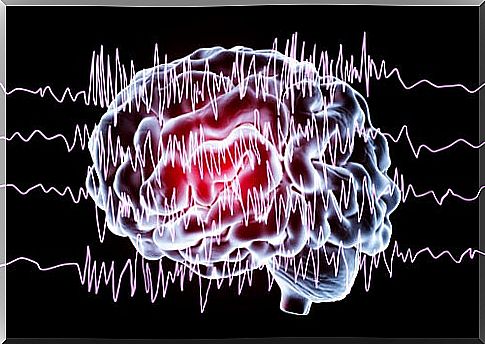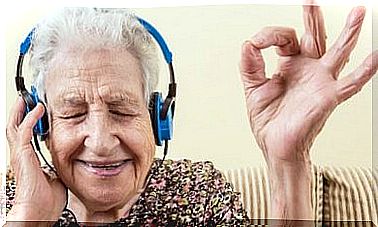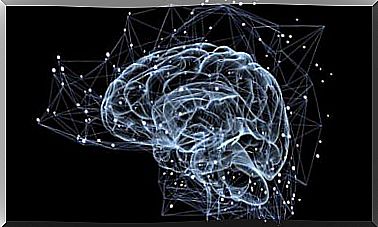How To Deal With A Seizure

Knowing how to deal with an epileptic crisis is essential to offer adequate relief. While there is not much we can do to stop the seizure, our support can help keep the person from further harm.
Epilepsy is a neurological disease that affects the electrical activity of the brain. It is true that there are different types of epilepsy, with different causes and symptoms. However, most are characterized by unpredictable seizures that often lead to neurobiological, cognitive and psychological consequences.
The factors that favor these seizures are numerous. For example, lack of sleep, drug use, etc. Sometimes sports that require very fast breathing, such as soccer or basketball, can also trigger epileptic seizures.
Most of the time, you should know that epilepsy goes away after puberty is reached. However, it can happen again if the trigger returns.
Some studies confirm that once a diagnosis of epilepsy is made, a first drug will have a 50% chance of controlling seizures. Later, a second can improve the situation for 15% more patients, and subsequent trials will achieve an even lower success rate.
The choice of medicine will be based on three main axes: the specific context of the patient, the pharmacological properties of the medicines and the experience of the caregiver.

How to deal with an epileptic crisis
When most people think of an epileptic seizure, the image of a person totally losing control comes to mind. In fact, in these cases there is a generalized tonic-clonic crisis, also called a grand mal seizure, which is characterized by affecting the entire surface of the brain and in which the person can scream, fall or shake, and not realize it. of what happens around him.
In contrast, partial seizures occur in a specific area that can spread to the rest of the cerebral cortex. In some cases, even the person experiences, before the crisis, the aura. It is a warning sensation that a crisis is about to occur.
If you meet someone who suffers an episode of this type and you do not know how to act in the event of an epileptic seizure, this is the general procedure you should follow:
- Stay with the person during the attack.
- Keep calm.
- Place the person on the ground to avoid injury.
- Gently flip the subject to the side. This will help you breathe.
- Cushion your head to avoid hitting it.
- Clear the area around the affected person. Remove objects that may come in contact with.
- Put something soft and flat, like a folded jacket, under your head.
- Loosening ties or anything around the neck that may make it difficult to breathe.
- It may be necessary to grasp the jaw carefully and tilt the head back slightly to open the airway.
- Do not allow anything to be put in the mouth. No drugs, no objects, no water.
- Do not shake the person or yell. This will in no way help you.
- Ask the people who are watching to stay behind. The one who suffers the attack may be tired, embarrassed or disoriented after the attack.
- Call someone for additional assistance if needed.

In which cases should you request professional help?
The first thing to know is that some seizures are more dangerous than others, but most do not require emergency help. The important thing is to focus on keeping the person safe. However, sometimes it is necessary to have a healthcare professional. We recommend asking for help in the following circumstances:
- This is the first seizure attack.
- The affected person is pregnant or diabetic.
- The attack lasts more than 5 minutes.
- The person does not regain consciousness after suffering the seizures.
- The individual hurts himself.
- Breathing problems appear after seizures.
- The individual has a high fever.
- The incident occurs in the water.
- The person does not regain consciousness.
- A second attack is suffered.
In short, remember that if you find yourself in a situation of this type it is important that you take into account these guidelines on how to act in the event of an epileptic crisis. It is a very delicate situation in which your performance can be decisive. If you are not sure how to help, remember that it is okay to ask for the help of a professional.









